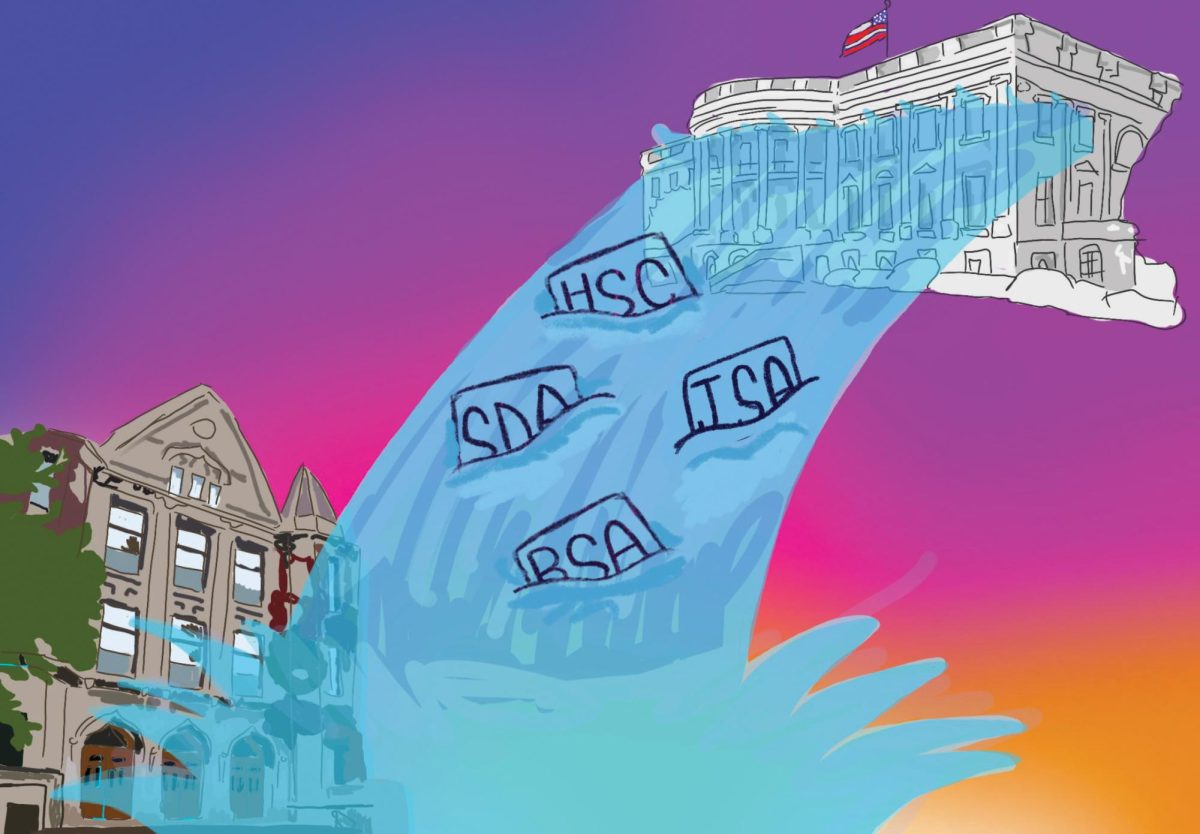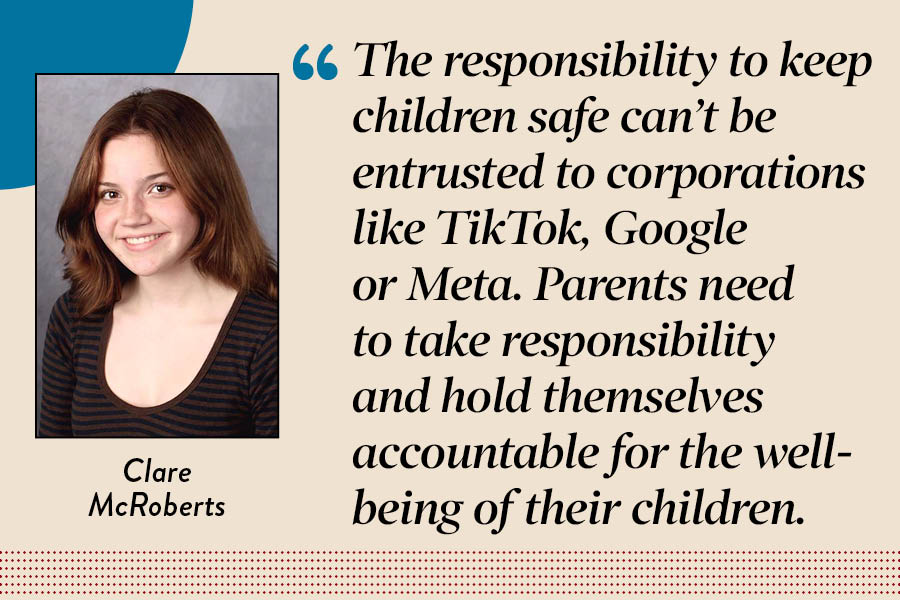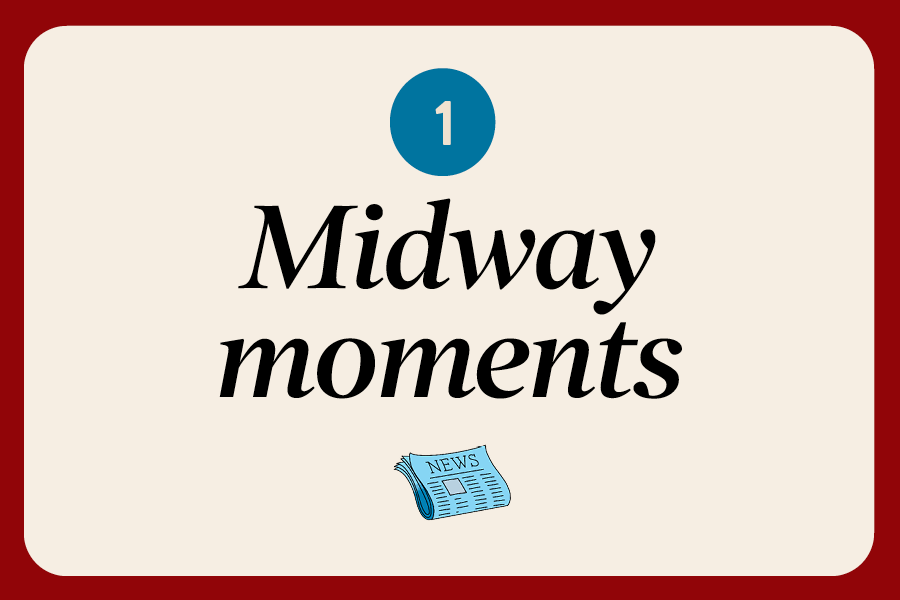I vaguely recall wanting to download Instagram onto my iPhone and asking my parents for it. I was in sixth grade, and it seemed like everybody around me had it. The world of social media was exploding, and I wanted to be a part of it.
However, what I remember far more vividly — and what sticks with me even now — is the discussion my parents had with me before giving in to my plea. They painted a picture of how the internet can be dangerous, especially for young girls like me.
I came away from that conversation with two conclusions that have lasted: never accept a follow request or message from someone you don’t know in real life and, perhaps as a corollary, never presume someone you don’t know is who they claim to be online.
The responsibility to keep children safe can’t be entrusted to giant corporations like TikTok, Google or Meta. Parents need to take responsibility and hold themselves accountable for the well-being of their children.
In every other aspect of life, parents undertake the responsibility to protect their children from the dangers of the world and to teach them how to stay safe. Parents would never consider sending their children off to cross a street without first teaching them to look both ways, and they would never permit their kids to jump in a pool without showing them how to swim. That’s what being a parent is. It’s not the duty of the government or private industry to ensure that children don’t burn themselves on stovetops or play with kitchen knives. In a sense, social media is like a stovetop burner or a knife. It’s a tool with inherent dangers.
It is parents, not the U.S. Justice Department or the Federal Trade Commission — or even TikTok — who must step up.
It is undeniable that the internet has made all sorts of content far more accessible. Images, videos and ideas widely deemed inappropriate for younger audiences are rampant and, with the help of social media, at everyone’s fingertips.
Yet the concern about exposing kids to concepts prematurely is hardly a new problem. Of course, long before the emergence of social media and even long before the internet, children were exposed to age-inappropriate images and ideas in literature, news media and television.
In those cases, as with social media, responsibility ought not fall on the government to ban content and risk the freedom of expression. The potential threat of governmental censorship of information is too great. It is better that individual families make individual decisions about their own children. The same goes for social media use.
As a practical matter, efforts at restricting social media sites based on age have been tried already. Officially speaking, plenty of social media companies already bar people under 13 from using their sites, but those limits have failed miserably. At the click of a button, a child can easily lie about their age and maneuver around restrictions.
Why should we expect new limits, like requiring proof of government-issued identification, to work any more effectively than the ones already in place? From using a parent’s device to submitting a parent’s identification, kids will simply find new and innovative ways around the new restrictions, and the debate will drag on.
In the end, we are wasting time searching for ways to force companies to police what children see on their feeds. The real solution may be more difficult. It will take time, day-by-day choices and hard conversations inside all of our homes, where parents must take responsibility for helping their children figure out how to be safe on social media.






















































